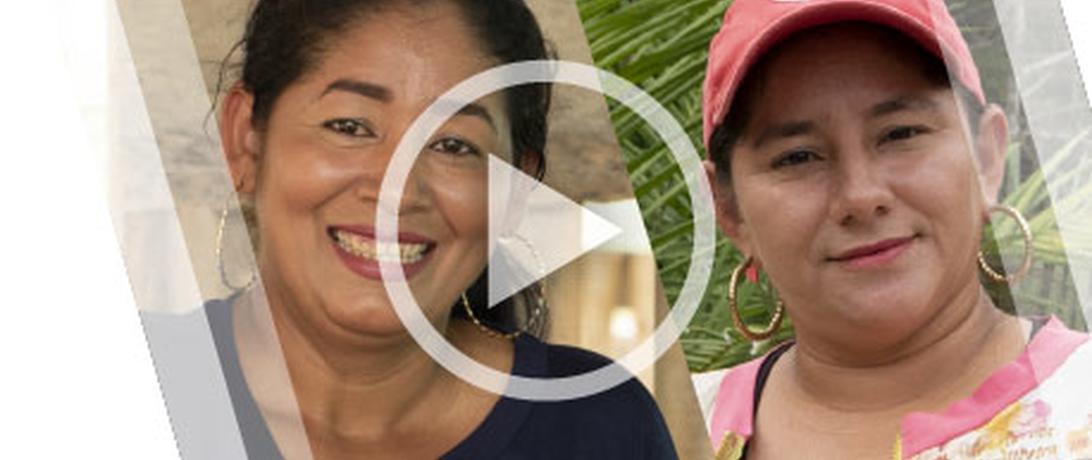Raids by paramilitary groups displaced Saura and Johana to different locations in Colombia’s Norte de Santander Department. To remake their lives, they were involved with coca crops for years to provide a livelihood and support their families. Without even knowing each other, their stories were linked. Today they rebuild the productive and collaborative networks of the municipality of Tibú with the help of PASO Colombia’s Contingency Plan to support Ex-coca Grower Families .
In this episode of 'Women Seeding Peace', Saura and Johana tell us how they came back to their lands and how, after subscribing to the National Comprehensive Program for the Substitution of Illicit Crops (PNIS), they began to grow food where there were once coca crops. Currently, they receive training and are building the infrastructures that are allowing them to enhance their new and legal productive projects, and realize their dream of a better future.
Like Saura and Johana, women who have substituted coca crops across Colombia are creating a new life for themselves and their communities. The “Women Seeding Peace” web series collects the stories of participants of PASO Colombia’s Contingency Plan, which supports families registered in the PNIS Program. Today, these women are the driving forces of sustainable development in their territories.
The Contingency Plan to Support Ex-coca Grower Families is funded by the UN Multipartner Trust Fund for Sustaining Peace in Colombia, and implemented by PASO Colombia in coordination with the Presidential Office for Stabilization and Consolidation.

